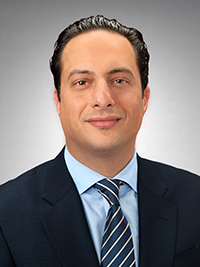
Associate Professor of Surgery
Chief, Division of GI Surgical Oncology
Co-Director, UPMC Pancreatic Cancer Center
University of Pittsburgh Medical Center
Pittsburgh, PA
Neoadjuvant Autophagy Inhibition in Pancreatic Adenocarcinoma Promotes an Effector T Cell Response and Tertiary Lymphoid Structures
Overview
Aim: Basic Science / Cancer Immunology
Pancreatic cancer is a devastating disease that is projected to be the second leading cause of cancer death in the United States by 2030. Advances in immunotherapy have revolutionized cancer care, providing hope for cancer patients in the form of durable cancer regression and long-term survival. Unfortunately, an immune response to pancreatic cancer has been elusive in most clinical trials, and thus identifying ways to enhance the body’s immune response to cancer has been the focus of our research program for the last two decades. We previously identified autophagy, essentially programmed survival, as a mechanism of pancreatic cancer persistence, chemotherapy resistance, and immunosuppression. Recent findings from our center suggest that treatment of patients with gemcitabine/Abraxane chemotherapy and autophagy inhibition prior to surgical resection of the tumor improves histopathological response (increased tumor destruction) and decreased CA 19-9, a common pancreatic cancer biomarker. Combined autophagy inhibition and chemotherapy also increased infiltration of immune cells within the tumor and was associated with improved overall and progression-free survival. Utilizing novel methods of high throughput next generation sequencing and paired spatial analysis, we aim to characterize the diversity of these tumor infiltrating immune cells. Comprehensive interrogation of the infiltrating immune cells and their correlation to patient outcomes will help to directly develop precision biomarkers of treatment response. Ultimately, these studies will provide the foundation for developing immune based therapies, helping to advance pancreatic cancer into a disease that our own immune system can control.